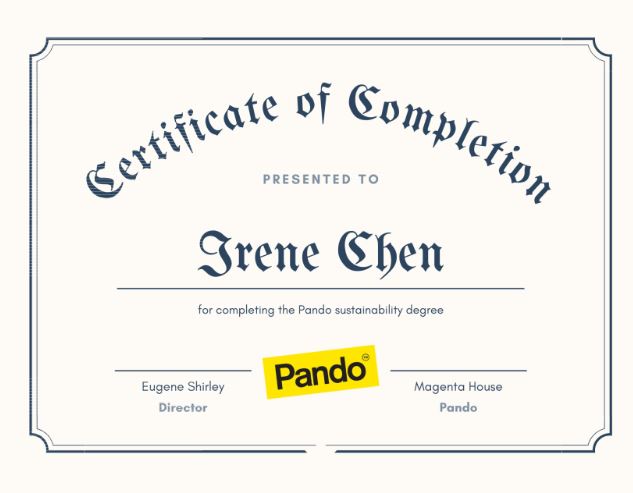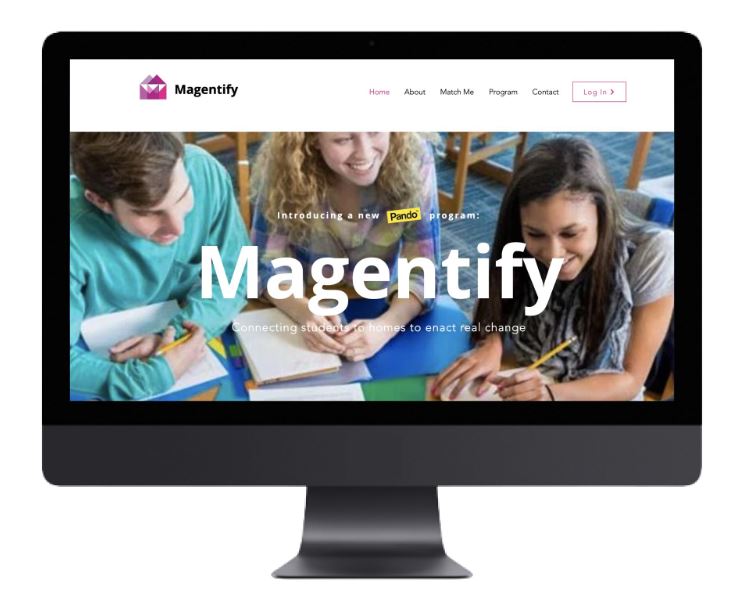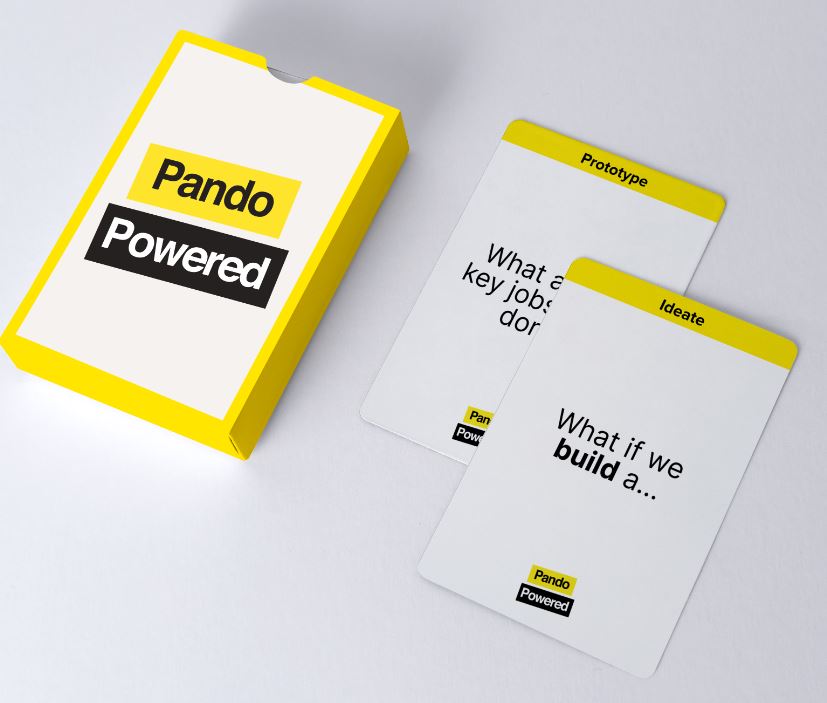USC Helps Pando the World
This spring, USC’s Iovine and Young Academy focused the entirety of a graduate-level industry practicum course on helping Pando more fully develop its project-based learning programs for sustainability. The coursework targeted Magenta House, our civic engagement program for middle school.
USC instructors Yihyun Lim and Trent Jones led some three dozen students in their work – a combination of research and program innovation.
The course challenge:
How might we explore new opportunities for Magenta House to empower young people to care more about sustainability and do something about it locally?
The five working groups began by conducting interviews with people in the Magenta House target audience – youth and teachers. They reported perspectives on sustainability ranging from “overwhelming pessimism” to “great hope for substantial progress.” They registered intense feelings (including “overwhelmed” by the issues and unsure where to fit in with the changes that are in store), and uncovered an increasing sense of powerlessness as the focus of action shifts from individual to community.
According to one of the reports, “Many LA residents feel that they do not have sufficient knowledge on how to collectively make a large community impact.” They are “looking for Pando to supplement their education with community-driven activities that have tangible, measurable results.”
With community-based research in-hand, the teams developed user personas to embody their findings and make them more actionable.
The persona of Mark, 17, describes a “high school student who feels responsible for contributing to impactful projects. He wants to make sure that the time and effort he puts into projects are worthwhile, but is wary of obstacles that may arise without proper guidance and direction.”
The persona of Alice, 38, is a teacher “who feels passionate about inspiring students about community/social impact. They need to organize hands-on activities to get students involved, but don’t have the time or resources to do so.”
The students built on their research using principles of design thinking to meet the course challenge. Here are the ideas the five teams came up with for Pando to implement – for Magenta House, and for our use more broadly. Enjoy!
Course deliverables
Pando Sustainability Degree: a comprehensive program that integrates sustainability content with the regular K-12 curriculum, offering students who opt-in a sustainability certificate at graduation. The alternative program complements a regular degree, with project-centered opportunities that combine theory with practice.
Magentify: a program that connects student teams with local families to “magenta” their homes and become stand-out examples of water and power conservation and efficiency. Students gain leadership skills and spearhead community education to enable real change.


Pando Your World: an online app that curates a collection of amazing sustainability initiatives run by youth. The app allows students to discuss their biggest sustainability challenges, meet fellow changemakers, and share their ingenious work.
Water Tower: a multiplayer community game that brings public awareness to sustainability challenges – like water conservation – and incentivizes communities to create solutions. Utilizing high-profile public spaces, the game gets neighbors competing with (and not against) each other, talking together, and solving problems.


Pando Powered Toolkit: a deck of cards, a set of prompts, and a planning board that turns design thinking methodology into an easy-to-use process that allows anyone anywhere to create their own sustainability solutions – to virtually anything.
The kit includes key content, the stages of design thinking, descriptions of past examples, and more.

